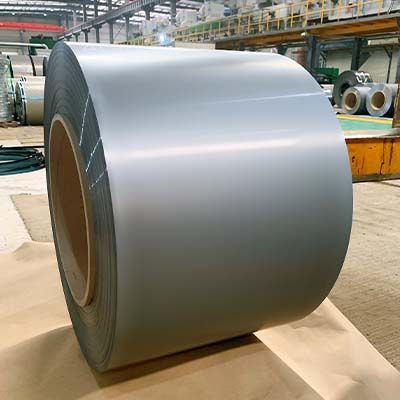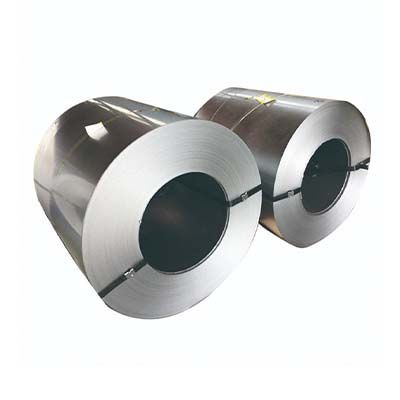Silicon steel, also known as electrical steel or transformer steel, is a unique alloy that exhibits exceptional magnetic properties. However, its mechanical properties are equally crucial in determining its overall performance and suitability for various applications. Here we will get to know more about silicon steel mechanical properties.
What are Silicon Steel Mechanical Properties?
Silicon steel is a particular type of low-carbon steel alloyed with silicon, typically containing around 3-4% silicon by weight. This alloy's primary purpose is to improve the electrical conductivity and magnetic properties of the material, making it ideal for applications in power transformers, electric motors, and generators.
And silicon steel mechanical properties refer to the characteristics that describe how a material responds to applied forces or loads, which play a crucial role in determining the material's strength, durability, and suitability for specific applications. Some of the key mechanical properties include tensile strength, yield strength, elastic modulus, hardness, and impact strength.
While silicon steel is primarily valued for its magnetic properties, its mechanical properties are equally significant. Understanding and optimizing these properties enable to design and produce silicon steel with enhanced strength, stability, and reliability.
Tensile Strength
Tensile strength measures a material's ability to resist deformation under tensile (pulling) forces. It is the maximum stress a material can withstand before breaking or fracturing. In the context of silicon steel, tensile strength determines its ability to withstand mechanical stresses during manufacturing processes and in operational conditions.
Several factors influence the tensile strength of silicon steel, including the composition of the alloy, grain size, heat treatment, and processing techniques. Higher silicon content and refined grain structures generally result in increased tensile strength.
Tensile strength is typically measured using a universal testing machine, which applies gradually increasing tensile forces to a standardized specimen until it fractures. The resulting stress-strain curve provides valuable insights into the material's behavior under tension.
High tensile strength in silicon steel ensures structural integrity and resistance to deformation in various applications, such as power transformers, electric motor laminations, and magnetic cores.
Yield Strength
Yield strength represents the stress level at which a material exhibits permanent deformation or a specified amount of offset from the initial strain. It determines the maximum stress a material can endure without experiencing plastic deformation.
The yield strength of silicon steel is influenced by similar factors to tensile strength, such as composition, grain size, heat treatment, and processing techniques. Finer grain structures and increased silicon content tend to enhance yield strength.
The yield strength is commonly determined through a tensile test, where the material is subjected to gradually increasing tensile forces until it reaches the point of yielding.
Yield strength is crucial in ensuring the structural integrity and resilience of silicon steel components subjected to mechanical loads or stresses, including power transformers, electrical machinery, and magnetic cores.
Elastic Modulus
The elastic modulus, also known as Young's modulus, is a measure of a material's stiffness or its ability to resist elastic deformation when subjected to an applied force. It defines the relationship between stress and strain within the material's elastic range.
The elastic modulus of silicon steel is primarily influenced by its chemical composition, microstructure, and temperature. Higher silicon content and refined grain structures tend to increase the elastic modulus.
The elastic modulus is determined through various methods, including tensile testing, flexural testing, or ultrasonic techniques, depending on the specific requirements and properties being investigated.
The elastic modulus is crucial in designing silicon steel components requiring specific stiffness and resilience levels, such as magnetic cores, electrical machinery, and precision mechanical systems.
Hardness
Hardness refers to a material's ability to resist indentation or penetration by an external force. It is an essential property in determining the material's wear resistance and its ability to withstand applied loads.
The hardness of silicon steel is influenced by factors such as its chemical composition, heat treatment, microstructure, and impurities present. Higher silicon content and appropriate heat treatments can enhance the hardness of the material.
Various testing methods, such as Rockwell hardness testing or Vickers hardness testing, can measure the hardness of silicon steel accurately.
Optimizing the hardness of silicon steel ensures its resistance to wear, deformation, and mechanical stresses, making it suitable for applications in cutting tools, electrical machinery, and high-stress environments.
Impact Strength
Impact strength refers to a material's ability to absorb energy under impact or sudden loading conditions without fracturing. It measures the material's resistance to brittle failure.
The impact strength of silicon steel is influenced by factors such as its chemical composition, microstructure, heat treatment, and notch sensitivity. Finer grain structures and suitable heat treatments tend to improve impact strength.
The impact strength of silicon steel is typically determined using Charpy or Izod impact tests, which involve striking a standardized specimen with a pendulum and measuring the energy absorbed during fracture.
High impact strength is crucial in applications that involve sudden or repetitive loads, such as electrical machinery, tooling, and components subject to mechanical shocks.
Conclusion
By comprehending silicon steel mechanical properties and tailoring them to specific requirements - harness the full potential of silicon steel and drive advancements in electrical and mechanical engineering. Please feel free to contact summer@aklgroup.cn for more information about top-quality silicon steel for any industrial applications.






